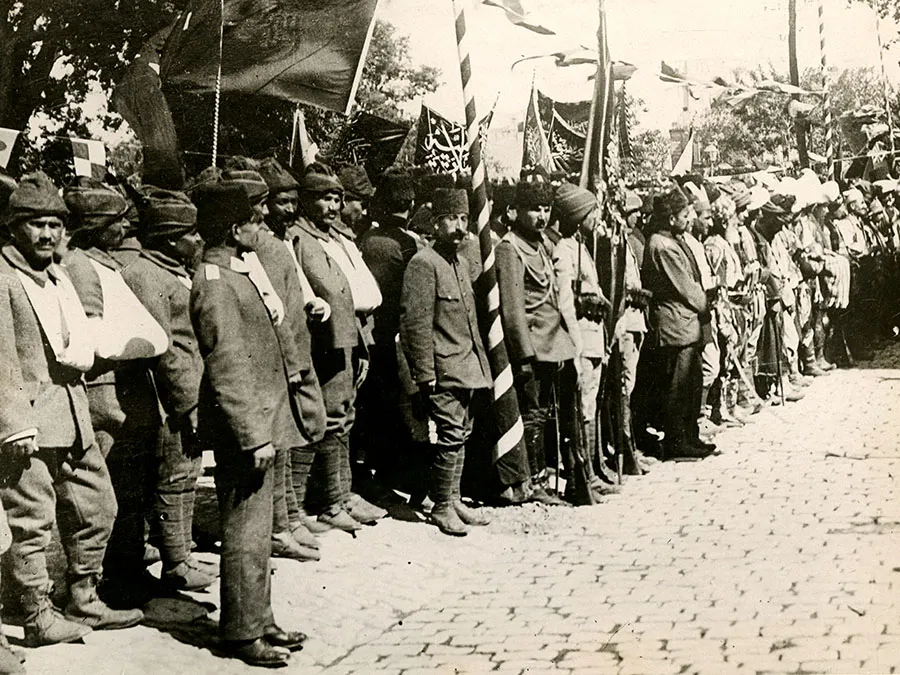Mustafa Kemal Ataturk, the founder of modern Turkey, is a pivotal figure in history whose life story encompasses resilience, intellect, and visionary leadership. Born in 1881 in Thessaloniki, Ataturk's journey began in a turbulent era characterized by the waning Ottoman Empire. His military career saw him rise to prominence, particularly during World War I, which ultimately set the stage for his impactful role as the leader of the Turkish War of Independence. After establishing the Republic of Turkey in 1923, Ataturk implemented a series of radical reforms aimed at modernizing Turkish society, fundamentally reshaping the nation's identity. This blog post will delve into Ataturk's early life, military achievements, his presidency, and the enduring legacy he left behind, providing a comprehensive overview of his contributions to both Turkey and the world.
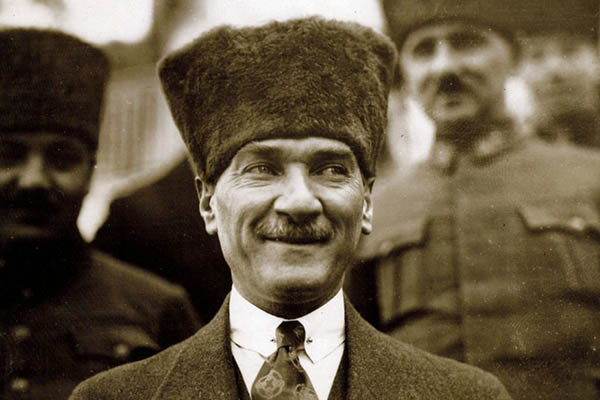
Early Life and Education
Mustafa Kemal Ataturk, a figure who would come to define modern Turkey and the evolution of its national identity, was born on May 19, 1881, in the city of Salonika, which at the time was a part of the Ottoman Empire, and his early life was characterized by both a supportive familial environment and the influence of the dynamic political landscape surrounding him, which would eventually funnel his ambitions toward reform and modernization. Growing up in a modest household, it was through the guidance and educational encouragement of his father that his interest in learning was ignited; his initial schooling took place in a local primary school, where he displayed a remarkable aptitude for mathematics and the sciences, laying the groundwork for his academic pursuits in later years. As he advanced in his education, Ataturk transitioned to military school, where he further honed his leadership skills, absorbed progressive ideas, and cultivated a sense of duty towards his country, demonstrating a keen desire to achieve excellence in both academic and military arenas that was increasingly recognized by his mentors and peers.
- Born in Salonika, 1881
- Early education in primary school
- Demonstrated aptitude in mathematics and sciences
- Attended military school to cultivate leadership skills
After completing his education at the Military Academy, Mustafa Kemal was commissioned as a junior officer in the Ottoman army, a move that not only propelled him into a career of service but also further exposed him to the intricacies of military strategy and national governance, each experience contributing to his growing sense of nationalism and reformist ideology that would shape his vision for Turkey's future. Throughout these formative years, it became increasingly evident that Ataturk was not only a passionate learner but also a visionary thinker whose experiences at various educational institutions would equip him with the tools necessary to navigate the tumultuous landscape of his time and redirect the trajectory of a nation that was grappling with the challenges of modernization amidst the decline of the Ottoman Empire. Ultimately, the amalgamation of his educational background and early experiences laid a substantial foundation for the remarkable biography of Mustafa Kemal Ataturk, one that would witness his transformation from a promising student into a pioneering leader, indelibly altering the course of Turkish history and inspiring countless generations to come.
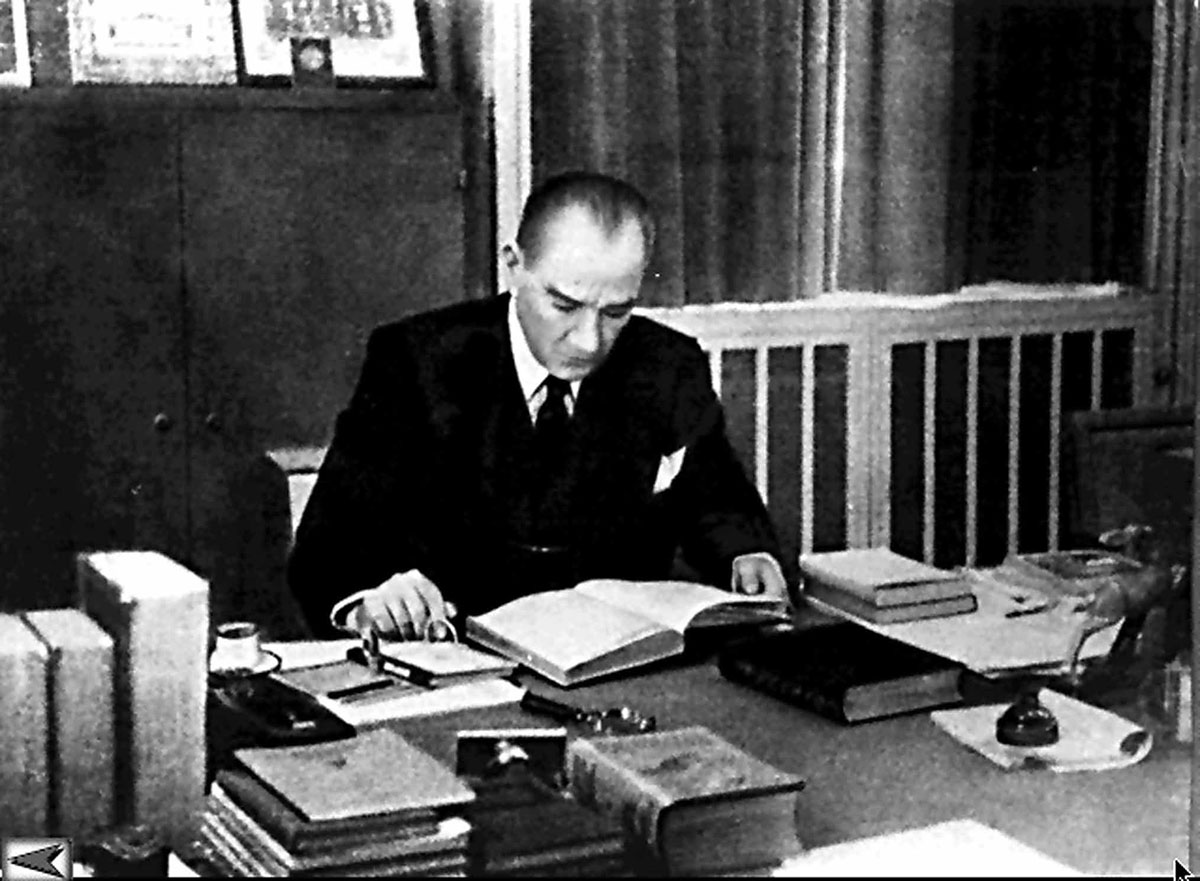
Military Career and Leadership
Mustafa Kemal Ataturk's military career, characterized by a blend of strategic brilliance and innovative tactics, laid the foundational stone for not only his personal legacy but also the future of a nation that was on the cusp of transformation, as during the tumultuous years of World War I, he served with distinction and gained prominence in various military campaigns, most notably at the Gallipoli Campaign in 1915, where his leadership and strategic acumen became evident, leading to significant victories against the Allied forces, which ultimately bolstered the morale of the Ottoman soldiers and showcased his capacity to inspire troops in the face of adversity. During this campaign, he displayed an exceptional understanding of battlefield dynamics, as evidenced by his skillful maneuvers and effective communication with his soldiers, which solidified his reputation as a competent commander and garnered him deep respect among his peers, and this experience would shape his future endeavors as he transitioned from military engagements to political leadership, thereby influencing the course of Turkish history.
Rise to Prominence
After the conclusion of World War I, Ataturk's military career did not wane; instead, he became a prominent figure in the Turkish War of Independence, a struggle that would ultimately lead to the establishment of the Republic of Turkey in 1923, where his leadership was instrumental in coordinating the national resistance against occupying powers and unifying disparate factions within the country under a singular goal of sovereignty and self-determination. His strategic insights were critical during various battles and campaigns of this conflict, which not only demonstrated his military prowess but also his ability to galvanize the populace and foster a sense of national identity among the Turkish people, and through these efforts, he became a national hero, symbolizing resilience and hope for the future. Ataturk's ability to innovate was also reflected in his emphasis on military modernization, recognizing that a strong and well-trained army was essential for establishing a robust nation, as he implemented reforms that transformed the remnants of the Ottoman military into a modern fighting force capable of defending the newly established republic, thus ensuring that Turkey could stand strong against any potential external threats.
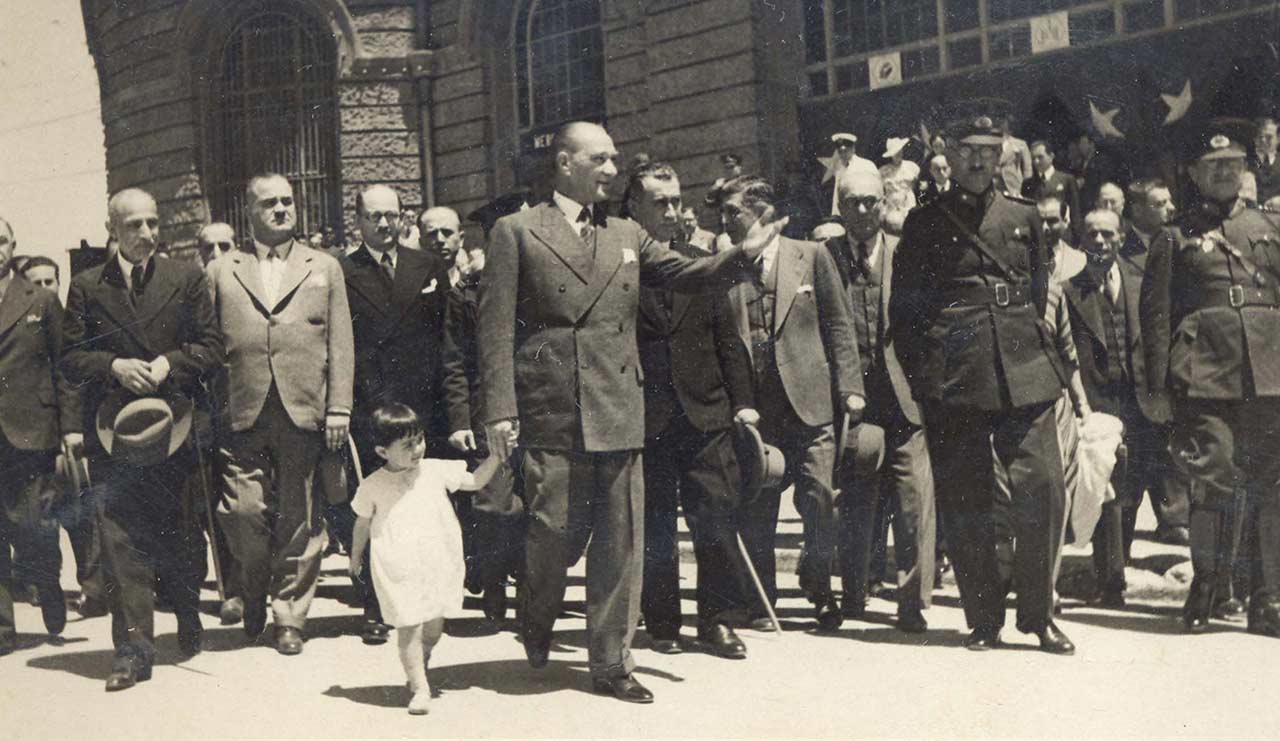
Leadership Philosophy
Central to Ataturk's military career was a distinct philosophy of leadership that revolved around principles of discipline, unity, and modernity, which he believed were essential attributes for both military and national success, as he instilled a sense of purpose and collective identity among troops, stressing the importance of loyalty, sacrifice, and national pride, which are crucial elements in any successful military campaign and resonate deeply within the broader context of nation-building. Ataturk understood that effective leadership in military contexts required a blend of compassion and an unwavering commitment to the cause, which meant listening to his men and understanding their needs while also pushing them to exceed their limits in pursuit of collective goals, and this duality made him not just a commander but a leader who inspired those around him, thereby fostering a lasting legacy that went beyond mere military strategies and operational success. In conclusion, Mustafa Kemal Ataturk's military career and leadership exemplify the qualities necessary for transforming a fragmented and war-ravaged society into a unified nation, and his experiences and philosophies continue to serve as a guiding light for the Republic of Turkey, illustrating the profound impact that his military service had on his subsequent reforms and the modernization efforts that followed, creating a transformative biography that still resonates in the hearts and minds of many today.
- Gained prominence during the Gallipoli Campaign
- Essential in the Turkish War of Independence
- Emphasized military modernization and reforms
- Fostered national pride and collective identity
- Blended compassion with discipline in leadership
Founding of the Republic of Turkey
The transition from the Ottoman Empire to the Republic of Turkey was not merely a political change but an event that would redefine the entire societal structure and cultural identity of a nation that had endured centuries of imperial rule, as Mustafa Kemal Atatürk, a visionary leader and military strategist, emerged from the chaotic aftermath of World War I with a resolve to establish a modern, secular, and democratic state. In 1920, amidst the tumult of the Turkish War of Independence, Atatürk galvanized the fragmented remnants of military and civilian society into a cohesive force with a singular aim: to establish sovereignty over Turkish lands, which were under threat from occupying forces and foreign interventions, thereby laying the groundwork for the Republic that would officially emerge on October 29, 1923. The foundation of the Republic was not an isolated event but rather a culmination of struggles against both internal strife and external pressures, reflecting the profound desire for national identity and autonomy that had brewed in the hearts of the Turkish people. Atatürk's efforts were bolstered by significant developments during the War of Independence, which was characterized by the establishment of a nationalist movement that rejected the monarchy and embraced democratic ideals; this movement ultimately gave rise to the Grand National Assembly of Turkey in 1920 as a response to the occupation of Anatolia. With a strong commitment to creating a political framework that would prioritize citizenship, civil rights, and a separation of powers, Atatürk and his colleagues sought to dismantle the Ottoman institutional legacy that had previously stifled individual freedoms and pluralism. The declaration of the Republic in 1923 marked not only a shift in governance but a radical transformation in the relationship between the state and its citizens, emphasizing the principles of nationalism, secularism, and modernization as cornerstones of the new national identity.
- The proclamation of the Republic of Turkey on October 29, 1923, brought significant constitutional changes.
- Atatürk was elected as the first President, representing a break from monarchical rule.
- The new government adopted sweeping reforms aimed at modernizing Turkish society and enhancing educational opportunities.
The establishment of the Republic of Turkey was followed by a series of bold reforms that aimed to align the country with contemporary global practices and elevate its status on the world stage; these included changes in language, law, education, and women's rights, which collectively represented Atatürk's vision of a modern republic. As part of this broad reform agenda, the adoption of the Latin alphabet in place of the Arabic script in 1928 was a groundbreaking move that not only facilitated literacy and education but also symbolized a departure from the religious influences of the Ottoman past, enabling a more rational and scientific approach to societal progress. Atatürk’s relentless pursuit of modernization further led to the establishment of new institutions, such as universities, that would serve as the breeding grounds for future generations of intellectuals and leaders who would carry his legacy forward. In summary, the founding of the Republic of Turkey was a pivotal moment in the country's history, signifying more than just a change in governance; it was a profound transformation that laid the foundation for a modern nation-state where reform and national sovereignty intertwined. The leadership of Mustafa Kemal Atatürk, marked by resilience, foresight, and ambition, played a crucial role in the establishment of a republic that not only embraced the challenges of the time but also sought to instill a sense of unity and purpose among its citizens. As such, Atatürk’s significant achievements during this transformative period continue to resonate in the contemporary landscape of Turkey, as the nation strives to embody the principles of democracy, secularism, and progress that he championed.
Reforms and Modernization
One of the most significant and transformative periods in the history of Turkey can be traced back to the early 20th century, particularly under the visionary leadership of Mustafa Kemal Ataturk, whose unparalleled dedication to the modernization of the nation served as a cornerstone for the very foundation of the Republic of Turkey, leading to extensive reforms that would redefine every aspect of life within the country. Emphasizing principles such as secularism, nationalism, and rationalism, Ataturk sought to create a modern state that reflected the values of contemporary civilization, enabling Turkey to emerge from the shadows of its Ottoman past and fully embrace the aspirations for progress and enlightenment that characterized the new era. Through a series of revolutionary changes across various domains—including education, law, economics, and social policies—Ataturk established a framework that aimed to elevate the Turkish society to the level of the more advanced nations of the world.
- Education Reforms: Establishment of co-educational schools, abolishment of religious schools.
- Legal Reforms: Adoption of the Swiss Civil Code, introduction of a secular legal system.
- Economic Reforms: Encouragement of industrialization, establishment of state-owned enterprises.
- Social Reforms: Emancipation of women, adoption of Western-style clothing.
The impetus behind Ataturk's sweeping reforms was rooted in his belief that education was the cornerstone for a prosperous future, leading to the establishment of new schools and universities that prioritized secular curricula aimed at fostering critical thinking and scientific inquiry, thus enabling a previously illiterate populace to ascend the ladder of education and knowledge. By abolishing the centuries-old practices of a religious-based education system, he sought to cultivate a new generation of enlightened citizens who were armed with the knowledge to contribute meaningfully to the advancement of their nation. Additionally, Ataturk encouraged the adoption of a Latin-based alphabet which replaced the Arabic script, simplifying the learning process and making literacy more accessible to the general public.
| Reform Area | Key Changes |
|---|---|
| Education | Creation of secular institutions, introduction of modern curricula. |
| Law | Implementation of secular law codes, women's rights legally recognized. |
| Economy | State intervention in industry, focus on infrastructure development. |
| Social | Legal equality for women, promotion of Western attire. |
The socio-economic implications of Ataturk's reforms were monumental, as they not only advanced the standard of living for many Turkish citizens but also promoted a newfound sense of national identity and pride that had been largely absent under the Ottoman Empire, consequently fostering a spirit of unity and collaboration among its diverse populace. Each reform was meticulously designed to intertwine with others, forming a cohesive strategy that not only modernized Turkey's infrastructure but also aligned its citizens with contemporary global ideals, thus preparing them for active participation in a rapidly changing world. It was through these transformative measures that Ataturk envisioned Turkey stepping into the ranks of modern nations, boldly asserting its place in an increasingly interconnected globe. Ultimately, the legacy of Ataturk's reforms continues to resonate in Turkey's contemporary society, where the lessons learned from this monumental period still serve as a guidepost for ongoing discussions surrounding national identity, cultural values, and the balance between tradition and progress, proving that Ataturk’s vision was not merely a product of its time but rather a timeless blueprint for future generations to build upon. As Turkey continues to navigate the complexities of global interaction, the principles of modernization implemented by Ataturk remain relevant, influencing new policies and movements that seek to align with a dynamic and ever-evolving world stage, cementing Ataturk’s status as not just a reformer, but a pivotal figure in the narrative of modernity itself. These reforms together forged the path for Turkey’s continued pursuit of progress, underlining the vital importance of strong leadership and visionary thinking in effecting meaningful change within a nation.
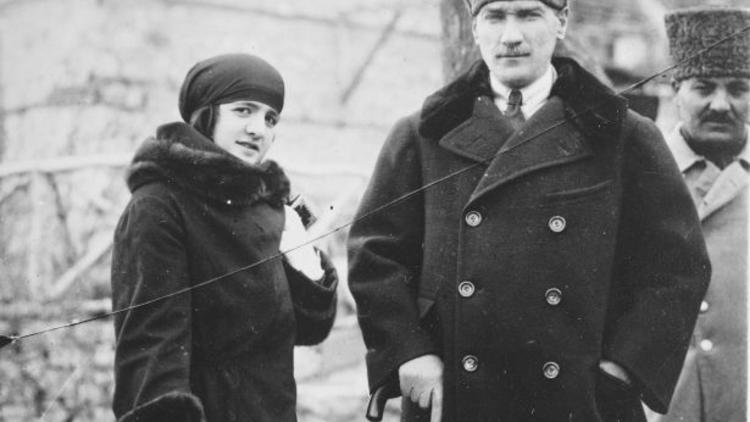
Role as President
In the wake of the establishment of the Republic of Turkey, Mustafa Kemal Atatürk assumed the presidency in 1923, a position through which he exerted immense influence over the nation's political landscape, and during his tenure, he did not merely hold a ceremonial role but instead acted as a visionary leader whose policies and reforms were pivotal in shaping modern Turkey into a secular and progressive state. Atatürk’s presidency was characterized by a series of sweeping reforms aimed at transforming the socio-political framework of a country that had experienced tremendous upheaval following the collapse of the Ottoman Empire, and his dynamic leadership style fostered a sense of unity and purpose among the diverse populations of Turkey, encouraging them to embrace a new national identity rooted in secularism and progress.
Reform Agenda
Atatürk understood that in order to transition from a monarchy to a republic, it was essential to implement a reform agenda that would address the socio-political and economic challenges of the nation, and thus, he focused on various areas such as education, law, and women’s rights, which were all integral to promoting modernization within the new republic. For instance, he introduced the Latin alphabet to replace the Arabic script, thereby enhancing literacy rates and enabling the Turkish people to better engage in contemporary discourse while fostering a sense of national pride through a new linguistic identity. Additionally, the sweeping changes made to the legal system, particularly the adoption of civil law codes inspired by various European models, dismantled the remnants of religious law and established a framework that promoted gender equality and individual rights, creating a more egalitarian society.
Vision for National Identity
Throughout his presidency, Atatürk skillfully articulated a vision for national identity that was inclusive yet distinctly Turkish, and he believed that fostering a sense of civic nationalism was crucial for unifying the diverse cultural groups within Turkey, leading to reforms that promoted Turkish history, language, and culture as cornerstones of the new republic. In doing so, he established national holidays and encouraged public celebrations that amplified this newfound sense of identity while simultaneously cultivating a spirit of patriotism among Turkish citizens, enabling them to take pride in their heritage and the achievements of their nation. This holistic approach not only mitigated potential ethnic tensions but also fueled Turkey’s ambitions on the global stage, as Atatürk aspired for Turkey to be recognized as a modern and sovereign nation that could stand shoulder to shoulder with the powers of the world, thereby securing its place in history. Throughout his presidency, Mustafa Kemal Atatürk revolutionized Turkey’s governance and societal structure, creating a legacy that still endures today, as his principles and reforms continue to influence contemporary Turkish political thought and identity, ensuring that the spirit of modernization and secularism remains an inherent aspect of Turkish society. In doing so, Atatürk not only fulfilled his dreams of transforming Turkey but also left an indelible mark on global history, as his story is a compelling biography of a leader committed to progress and reform, emboldened by a vision to uplift a nation and its people.
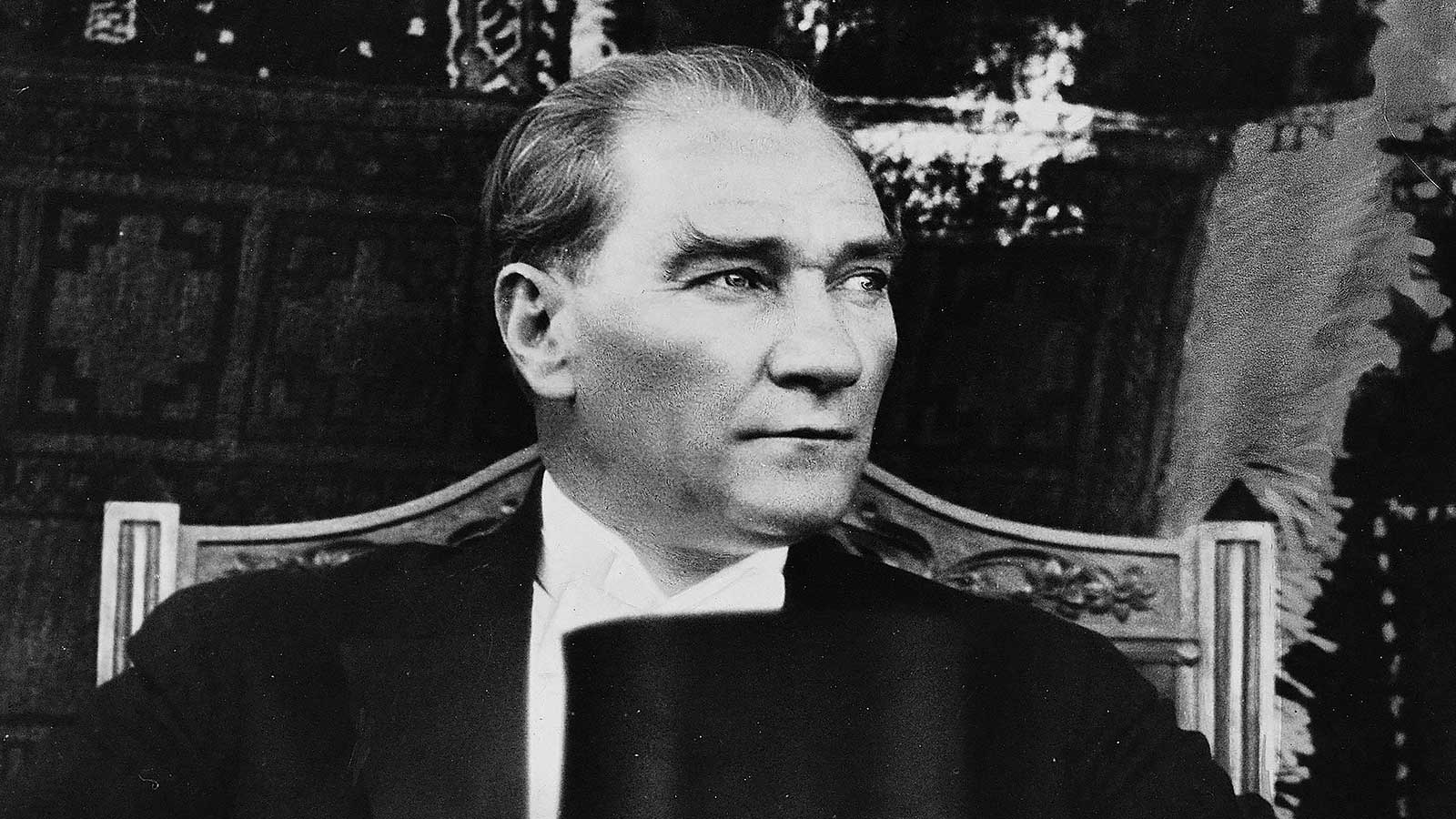
Foreign Policy and Diplomacy
One of the most significant aspects of Mustafa Kemal Atatürk's leadership was his visionary approach to foreign policy and diplomacy, which not only sought to redefine Turkey's place in the world following its tumultuous history but also aimed to create a foundation for peace and stability in the region. He recognized the importance of establishing cordial relationships with neighboring countries, as well as with Western powers, which was essential to securing Turkey's sovereignty and promoting economic growth in a newly sovereign nation that emerged from the ashes of the Ottoman Empire. Atatürk's foreign policy was primarily characterized by a principle known as Peace at Home, Peace in the World, which encapsulated his belief that a strong national identity and internal unity were paramount prerequisites for external success and international cooperation. To that end, he engaged in a series of diplomatic initiatives that included the signing of key treaties, such as the Treaty of Lausanne in 1923, which effectively recognized Turkey's borders and laid the groundwork for its status in the international arena, thereby addressing historical grievances and establishing a new sense of legitimacy for the young republic. In pursuit of a balanced approach, Atatürk emphasized a pragmatic strategy that aimed to navigate the complexities of international relations without being overly dependent on any single power, favoring neutrality and non-alignment. This approach not only assured Turkey's independence but also allowed it to engage responsibly and rationally with various nations, which led to Turkey becoming a member of the League of Nations in 1932—an important step reinforcing its commitment to global peace and cooperation.
| Year | Event |
|---|---|
| 1923 | Signing of the Treaty of Lausanne |
| 1932 | Turkey joins the League of Nations |
| 1934 | Signed the Balkan Pact |
Atatürk also fostered relationships with countries that shared similar modernization aspirations, which included actively supporting the establishment of cooperative frameworks among neighboring nations. One notable example of this was the Balkan Pact of 1934, which sought to promote mutual cooperation in order to enhance regional security, further illustrating Atatürk's commitment to diplomacy as a tool for peace rather than aggression. His policies and initiatives were aimed not only at war prevention but also at establishing Turkey as a credible contributor to regional stability. In conclusion, Atatürk’s foreign policy was instrumental in fostering a sense of national identity while also opening pathways to international dialogue and collaboration. His diplomatic engagements highlighted the importance of establishing Turkey as a respected member of the global community and served to ensure its integrity during a period of profound change. Ultimately, the legacy of his foreign policy and diplomatic efforts continues to influence Turkey's international relations to this day, marking a pivotal chapter in his biography that resonates in the dialogue around contemporary Turkish diplomacy.
Legacy and Impact
In examining the legacy of Mustafa Kemal Atatürk, it becomes abundantly clear that his profound influence on Turkey and the wider world is a testament to his transformative vision, which sought not only to reshape a crumbling empire into a modern republic but also aimed to foster a sense of national identity that had previously been elusive to the diverse populace of the region. Atatürk's commitment to secularism and modernization was encapsulated in his sweeping reforms, many of which touched upon education, law, and women's rights, ultimately laying the foundation for a new societal structure and a progressive outlook that encouraged individuals to break free from traditional constraints. It is often said that a nation is only as strong as its women, and Atatürk's advances in gender equality allowed women not just to gain rights but to become integral participants in the socio-political landscape of Turkey, heralding an era of empowerment that resonates to this day. Moreover, Atatürk's emphasis on education as a cornerstone of modern citizenship cannot be overstated, for he believed that a well-informed populace was fundamental to the sustainability of democracy and national pride, which inspired initiatives to create a nationwide public education system that was inclusive and accessible to all. His educational reforms facilitated a dramatic increase in literacy rates, a vital step towards a more engaged and informed citizenry that could actively contribute to both the governance and development of the nation. By reinstating a focus on science and rational thought, he not only elevated Turkey's academic standards but also aligned it with modernity, positioning the country within the global intellectual community. To better appreciate the extensive legacy of Atatürk, consider the following key impacts that define his contributions to contemporary Turkish society:
- The establishment of secularism as a fundamental state principle, removing religious influence from governmental affairs.
- The promotion of women's rights, including the right to vote and to be elected to public office, which was a radical departure from previous norms.
- The modernization of the Turkish language and script, promoting a sense of identity distinct from Ottoman influences, helping to unify the nation.
- The establishment of a strong national economy through state-led initiatives, which paved the way for future industrialization.
- The encouragement of national pride and identity, which resonated deeply within the fabric of Turkish society and remains a source of pride today.
In conclusion, the legacy of Mustafa Kemal Atatürk is not merely defined by the policies he implemented during his tenure but rather reflects an enduring impact that has shaped the ethos of modern Turkey and continues to resonate throughout generations, offering an enduring example of visionary leadership that pushed against the boundaries of tradition to embrace a progressive future. His life story, encapsulated in the term biography, serves as a powerful reminder of the potential for transformation and renewal, emphasizing how one determined individual can profoundly alter the course of a nation. The principles Atatürk championed not only shaped the trajectory of Turkey's development but also provided a framework for other nations seeking to navigate the complexities of modernity amid a changing global landscape.
Mustafa Kemal Ataturk's Death
In the early hours of November 10, 1938, the profound sorrow that enveloped the nation of Turkey became palpable as Mustafa Kemal Ataturk, the revered founder of the Republic, succumbed to illness at the age of 57, marking the end of an era characterized by revolutionary reforms and an unwavering commitment to modernization; his passing not only signified a personal loss to the Turkish people but also raised significant concerns regarding the future trajectory of the nation he had tirelessly shaped and transformed into a modern state through visionary leadership and extraordinary dedication. As news of his death spread, countless citizens gathered in solemn remembrance, reflecting on the indelible mark he had left on their lives, and the mourning period that ensued illustrated just how deeply Ataturk had endeared himself to the hearts of the Turkish populace, solidifying his legacy as a national hero whose influence would reverberate throughout history. The context of his death is critical; Ataturk had been battling health issues for a number of years leading up to this fateful day, culminating in his hospitalization for a worsening bout of cirrhosis. Despite the challenges he faced, Ataturk remained extraordinarily active in political affairs and continued shaping policy up until his final days, showcasing a resilience and dedication to his country that inspired admiration across all segments of society. Ultimately, the day of his death, which would forever be marked at 9:05 AM, transformed into a moment of national unity, with citizens gathering in public spaces, weeping and expressing their grief while carrying Ataturk's casket through the streets, epitomizing the profound love and respect they harbored for their esteemed leader. - Date of Death: November 10, 1938 - Age at Death: 57 years - Cause of Death: Cirrhosis - Final Words: I am proud to be a soldier of the Turkish Republic. Ataturk's death prompted an immediate reaction from the Turkish Parliament, which convened to honor his memory and solidify his achievements for posterity; declarations were made, and a national day of mourning was instituted, ensuring that the ideals he championed would remain at the forefront of Turkish society as a fitting tribute to the great leader himself. Notably, ceremonies were held across the country as citizens took to the streets to commemorate his life, reinforcing the ideals of nationalism, secularism, and progress that he tirelessly promoted throughout his tenure. In a poignant gesture that solidified his legacy, his mausoleum, Anıtkabir, later became a symbol of national pride and an enduring reminder of Ataturk's extraordinary contributions to the Turkish Republic, further elevating his status in the annals of history. The impact of his death echoed internationally, drawing expressions of condolence and admiration from world leaders who recognized Ataturk's substantial role in redefining not only Turkey's place in the world but also its governance and outlook as a modern, secular nation-state. In the wake of his passing, the young republic faced numerous challenges as it sought to navigate the complexities of maintaining the revolutionary principles that Ataturk had instilled, leading to debates about the viability of his reforms and the path forward for the nation he had dedicated his life to uplifting. As his biographers and historians have often pointed out, Ataturk's vision for a progressive Turkey — one characterized by secularism, gender equality, and educational reform — continues to resonate, thus making his legacy not just an essential component of Turkish history but also a source of inspiration globally for those pursuing similar ideals of change and modernization in their own societies.
Frequently Asked Questions
Who was Mustafa Kemal Ataturk?
Mustafa Kemal Ataturk was the founder of the Republic of Turkey and served as its first president from 1923 until his death in 1938.
What were some major reforms implemented by Ataturk?
Ataturk implemented numerous reforms including the adoption of the Latin alphabet, the establishment of a secular education system, legal reforms for women's rights, and economic modernization efforts.
What role did Ataturk play in World War I?
During World War I, Ataturk served as a military officer and gained fame for his leadership at the Battle of Gallipoli, where he successfully defended the Ottoman Empire against Allied forces.
How did Ataturk impact women's rights in Turkey?
Ataturk significantly advanced women's rights by granting them the right to vote and to be elected to public office, as well as promoting gender equality in education and employment.
What is the significance of Ataturk's reforms in Turkish culture?
Ataturk's reforms aimed to modernize and secularize Turkish society, promoting nationalism and a break from Ottoman traditions, which had lasting impacts on Turkish culture and identity.
What was Ataturk's vision for Turkey?
Ataturk envisioned a secular, modern nation-state that embraced science and rationalism while rejecting superstition and traditionalism, aiming to position Turkey among the world's contemporary nations.
How is Ataturk remembered today?
Ataturk is remembered as a national hero in Turkey, with numerous statues, landmarks, and institutions named after him, along with an annual national holiday, Republic Day, celebrating his legacy.


